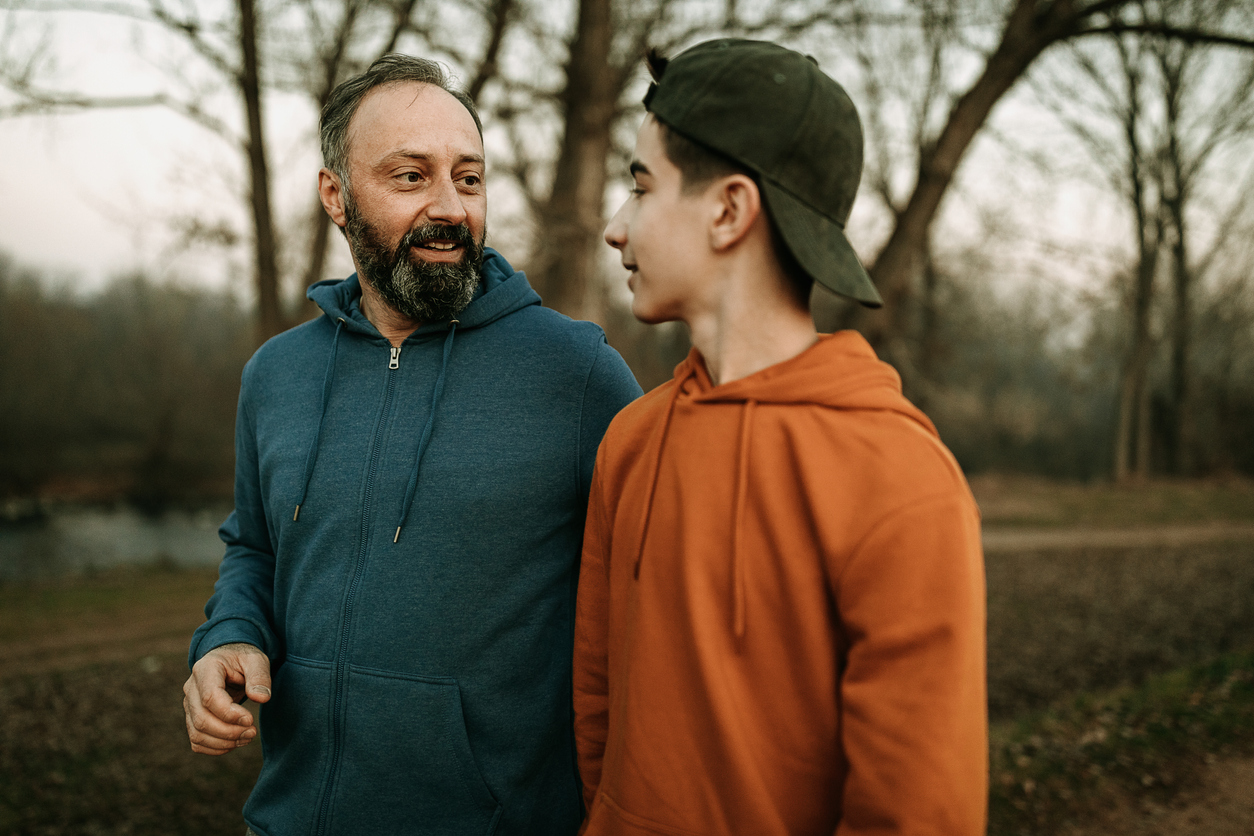
Anger is a normal, healthy emotion that everyone has. But sometimes anger can seem unkind, aggressive and even frightening. Here are some practical tips to spot, manage and get support with anger issues.
Learn more about how to understand and manage challenging behaviour in kinship children you care for.
This advice applies to: England and Wales
We’re running a number of workshops on managing challenging behaviour in kinship families, both in person and online. These are free to join and aimed at kinship carers living in England.
Click on the link below to take you to the section you'd like to read:
All children display challenging behaviour at times – it’s a normal part of growth and development.
Children in kinship care have often experienced adversity, loss, separation or trauma. They may also have special educational needs or disabilities (SEND). Our research found that 47% of kinship children have a SEND.
As a result, they can be at higher risk of displaying challenging behaviour, which might look like:
Caring for children can be hard, but when behaviour is challenging it can cause extra undue stress and distress for kinship carers and the wider family. Children’s challenging behaviour can impact you in several ways:
Kinship carers might experience:
Kinship carers might feel that they’re:
Kinship carers might have to:
Kinship carers might:
Kinship carers may experience:
Kinship carers can experience several (or all) the above, which can make caring at home challenging for everyone involved.
There often isn’t a simple, one-size-fits-all solution to effectively manage challenging behaviour. The impact on the family can mean emotional and mental resources that could change things can be in short supply.
You could consider these activities to try and help:
Once you’ve identified activities or events that sometimes lead to challenging behaviour and dysregulation with your child (perhaps by keeping a diary – see tip below), you can try to avoid or change these as best you can.
It may be hard to find people to help with care, but perhaps they can help with:
You may also want to consider if there are people who can:
If you can, plan ahead and get support.
Can you walk away, or can someone else step in?
Additionally, you can calm children down, let off steam together and help them regulate with things like:
If you’re not sure where to start, try a few and see what works for your family.
We can be drawn into worrying about things that don’t matter at a later date. Or, we feel like we’re nagging over things we expect children to do, like:
It may be helpful to ask yourself, “is the challenge of them doing it worth the battle?”
You’re not giving in if you’re choosing to:
Even older children can be distracted in the moment.
If behaviour is challenging, wait until a child is regulated and able to talk about it.
Nature can be calming and relaxing – find a local spot you like to go for a walk.
This can help you remember what’s happening, and identify behaviour linked to external factors like:
If you know what starts behaviour (or makes it worse), you can try making changes to help.
Your physical and mental health is as important as your child’s – looking after both helps everyone involved. This is, however, often the last thing on the list. To make self-care a top priority, you could:
You know yourself best, so do what helps.
Moving between activities or life phases (for example home to school, or between two different homes) can impact some children and trigger certain behaviours. Plan for and with them – speak together about how to make any difficult transitions easier.
Avoid shame to change behaviour – noticing when your kinship child has made great progress, and recognising that, can work so much better.
First and foremost, talk to your kinship child. How can you help them when they’re upset or distressed? Broach this subject when everyone is calm.
Speaking to other kinship carers, family or friends about what’s happening can also really help lighten the load. Not everyone is able to listen, so choose someone who:
When people know and understand, they can often help.
Use our Someone Like Me service to speak to a specially trained kinship carer volunteer on the phone.
Search for a peer support group in your area to connect with other kinship carers near you.
As well as talking to friends, family or someone trusted, you might need general advice, urgent help or to find out what help is available.
As needed, you can also contact:
You may also be able to access the adoption and special guardianship support fund – which can help with funding for therapeutic support for your kinship child if eligible.
There are also additional ways to get help:
Here at Kinship, we offer a range of free support for all kinship carers, including workshops, online advice and information, and support groups.
To find services, information and support in your local area, including information about your local children’s services, use our Kinship Compass tool.
You can also contact the Kinship advice team for free, non-judgmental advice and information if you live in England or Wales.
Sign up for emails to keep up to date with the information that’s important to you, from support and advice for kinship carers, to our latest news, events and campaigns.